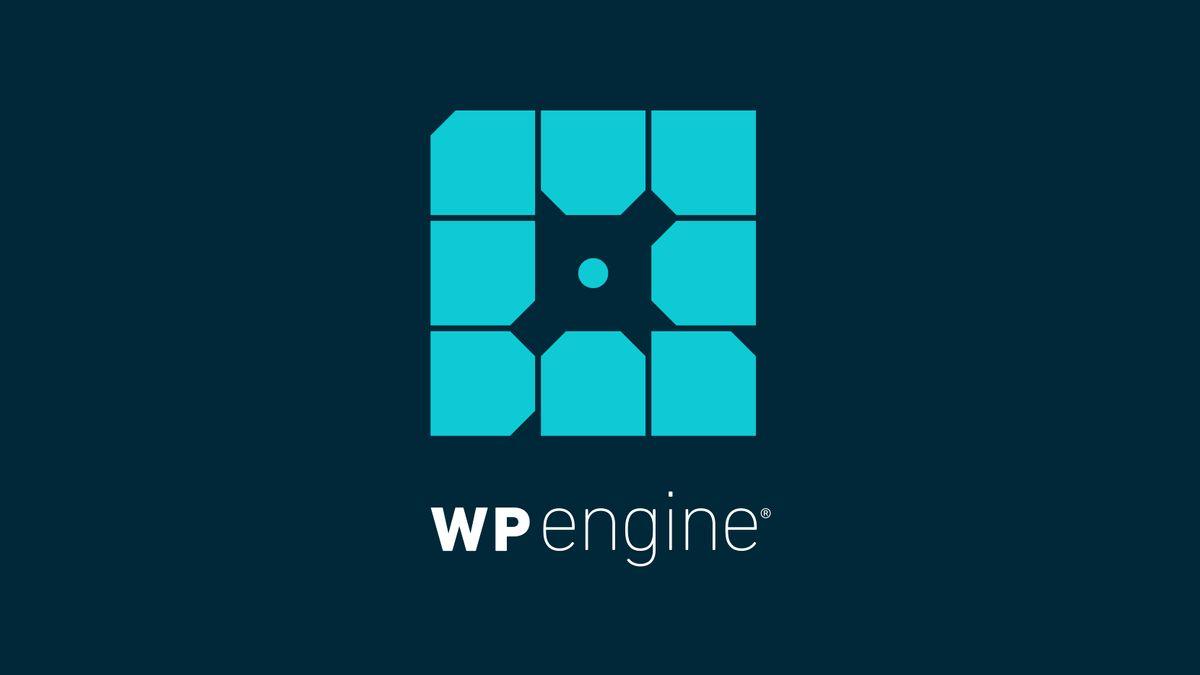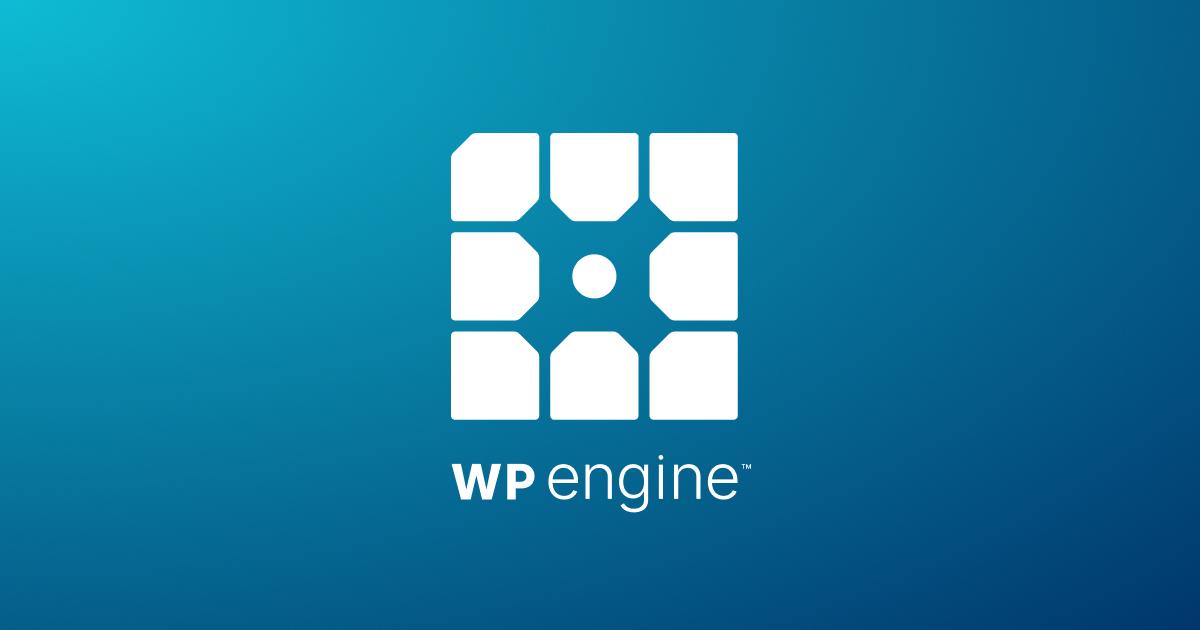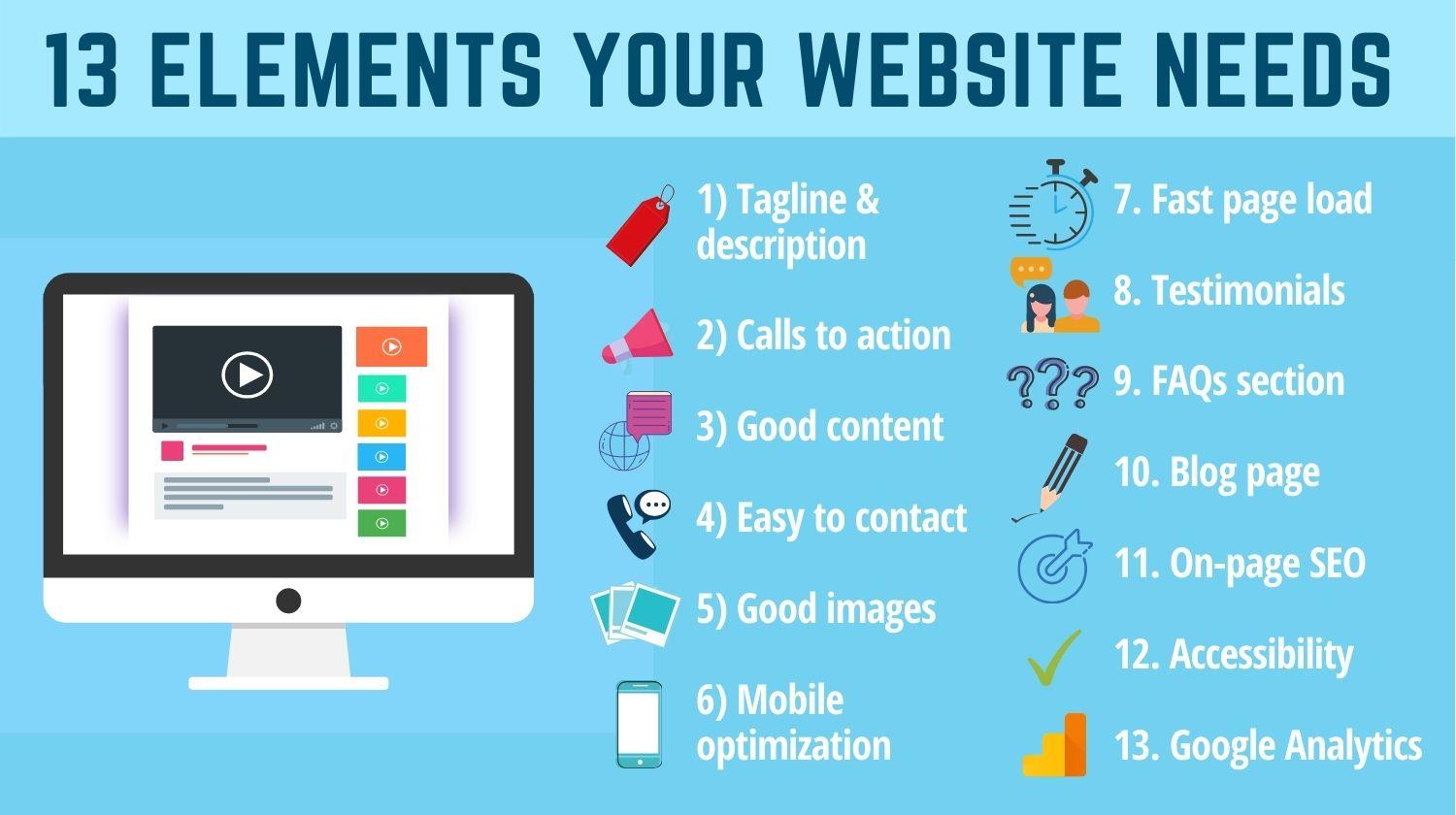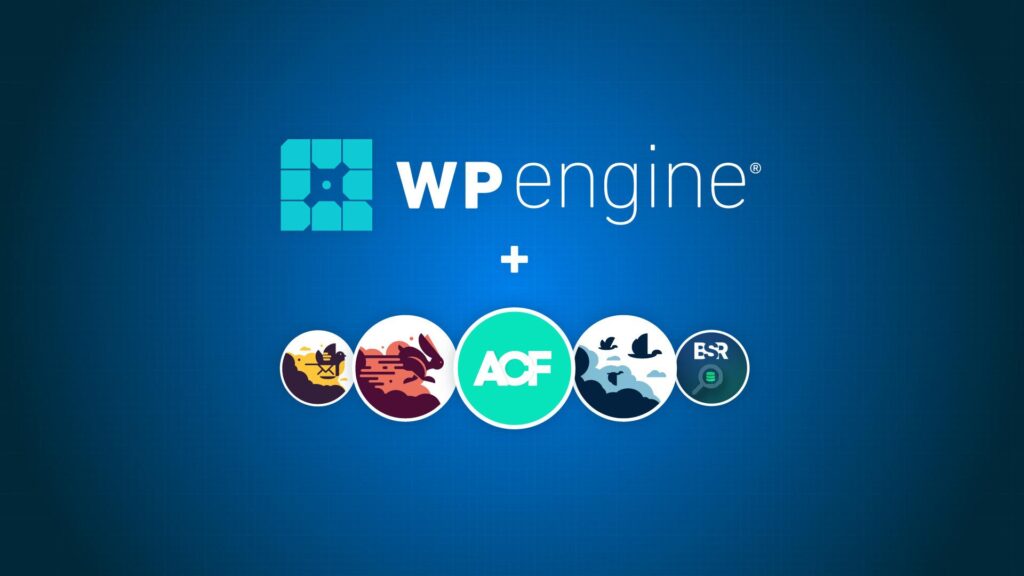When it comes to building your dream website, the platform you choose can make all the difference. With so many options out there, two names often come up in the conversation: WP Engine and WordPress.com. Both promise to simplify your site-building journey, but they cater to different needs and budgets. So, which one really offers the best plans and prices? In this article, we’ll dive deep into the features, pricing structures, and overall value of WP Engine and WordPress.com, helping you decide which platform deserves a spot at the top of your to-do list. Whether you’re a budding blogger, a small business owner, or a seasoned developer, understanding the nuances between these two giants will empower you to make an informed choice that aligns with your goals. Let’s unpack the details and find out who really has the upper hand!
Understanding the Basics: WP Engine vs WordPress.com
When diving into the world of WordPress hosting, understanding the differences between WP Engine and WordPress.com is crucial for making an informed decision. Both platforms cater to different needs, appealing to various types of users and businesses. WP Engine is known for its premium managed hosting service tailored for professional developers and businesses, whereas WordPress.com offers a more user-friendly experience, perfect for beginners or casual bloggers.
One of the standout features of WP Engine is its performance and reliability. Users can benefit from advanced caching, CDN integration, and optimized server environments. Here are some of the key advantages:
- Scalability: Easily scale your resources as your traffic grows.
- Automatic backups: Regular backups ensure your data is safe.
- Expert support: 24/7 customer service from WordPress experts.
On the other hand, WordPress.com is an excellent option for those who want simplicity without the need for technical skills. Its pricing plans are tiered based on features, making it accessible for everyone from hobbyists to professionals. Here’s a quick comparison of their pricing structures:
| Plan | Price (Monthly) | Key Features |
|---|---|---|
| Free | $0 | Basic features, limited storage |
| Personal | $4 | Custom domain, no ads |
| Premium | $8 | Advanced design tools, monetization options |
| Business | $25 | Plugins, themes, and SEO tools |
| eCommerce | $45 | Full eCommerce features |
Ultimately, the choice between these two platforms boils down to your specific needs. If you seek high performance, advanced features, and expert support, WP Engine could be the better option. However, if you prefer a straightforward and affordable way to create a website without technical hassles, then WordPress.com may be the right fit. Each platform has its unique strengths, making it essential to assess what aligns best with your goals.
Exploring Pricing Structures: Which Platform Offers Better Value?
When it comes to choosing a platform for your website, understanding the pricing structures can be overwhelming. Both WP Engine and WordPress.com offer a range of plans and prices that cater to different needs, and finding the best value for your investment is essential. Let’s take a closer look at what each platform has to offer.
WP Engine focuses on premium managed WordPress hosting. Their pricing is structured based on the level of service, performance, and additional features. Here’s a quick snapshot of their plans:
| Plan | Monthly Price | Features |
|---|---|---|
| Startup | $20 | 1 website, 10 GB storage, 50 GB bandwidth |
| Professional | $39 | 3 websites, 15 GB storage, 75 GB bandwidth |
| Business | $78 | 5 websites, 30 GB storage, 150 GB bandwidth |
On the other hand, WordPress.com offers a freemium model, where basic features are free but advanced capabilities come at a cost. Their plans are designed for various users, from bloggers to businesses. Check out their pricing options:
| Plan | Annual Price | Features |
|---|---|---|
| Free | $0 | Basic features, WordPress.com subdomain |
| Personal | $48 | Custom domain, email support, no ads |
| Business | $300 | Advanced SEO, plugins, eCommerce options |
When evaluating which platform offers better value, consider not only the price but also the features that come with each plan. For instance, WP Engine’s plans come with robust performance features like automatic backups, enhanced security, and 24/7 support. Meanwhile, WordPress.com provides scalability, especially for users starting with a blog and looking to grow over time.
Ultimately, the choice depends on your specific needs. If you’re seeking a high-performance site with dedicated support and advanced features from the get-go, WP Engine might be the better fit. Conversely, if you’re looking for flexibility and a wide range of options as you grow, WordPress.com offers compelling benefits at various price points.

Performance Comparison: Speed and Reliability of WP Engine and WordPress.com
When it comes to choosing between WP Engine and WordPress.com, performance is a decisive factor that can influence your overall experience and satisfaction. Both platforms offer unique strengths, but they cater to different user needs, especially regarding speed and reliability.
WP Engine is renowned for its robust infrastructure and top-tier performance optimization. Here are some key points:
- Lightning-Fast Load Times: With built-in caching and a content delivery network (CDN), WP Engine ensures that your website loads quickly, which can significantly enhance user experience and SEO performance.
- 99.95% Uptime Guarantee: WP Engine prides itself on its reliability, offering an uptime guarantee that means your site will be accessible nearly all the time, minimizing the risk of lost traffic or revenue.
- Scalability: As your business grows, WP Engine can easily accommodate increased traffic without compromising performance.
On the flip side, WordPress.com caters well to bloggers and smaller sites with its user-friendly design and hosting solutions, but performance can vary significantly based on the plan you choose:
- Basic Plans: The free and lower-tier plans may not offer the same speed as WP Engine, especially during peak times when server resources are shared.
- Advanced Plans: Upgrading to a Business or eCommerce plan can enhance reliability and speed, but it may not reach the level of WP Engine’s dedicated hosting.
- Built-In Optimizations: WordPress.com does provide some level of performance optimization, but it may not be as comprehensive as WP Engine’s offerings.
| Feature | WP Engine | WordPress.com |
|---|---|---|
| Load Speed | High | Variable |
| Uptime Guarantee | 99.95% | Up to 99.9% |
| CDN Included | Yes | No (unless on higher plans) |
| Scalability | Excellent | Good |
Ultimately, if your focus is on speed and reliability, WP Engine stands out as the clear winner, particularly for businesses and serious bloggers who cannot afford downtimes or sluggish performance. WordPress.com may suffice for casual users or hobbyists, but for a professional online presence, WP Engine offers the performance guarantees that can take your site to new heights.

Features That Matter: What Each Platform Brings to the Table
When it comes to choosing between WP Engine and WordPress.com, understanding the unique features each brings can help you make the right choice. Both platforms cater to different user needs, and their offerings reflect those distinctions.
WP Engine shines with its robust features tailored for serious developers and businesses looking for high performance. Here are some key highlights:
- Managed Hosting: WP Engine handles all server management, letting you focus on building your site.
- Staging Environments: Easily test changes before deploying them live, ensuring a smooth user experience.
- Automatic Backups: Your data is safe with daily backups that can be restored with a click.
- Speed Optimization: Built-in caching and CDNs ensure your site loads quickly, enhancing user satisfaction.
On the other hand, WordPress.com caters to users who prefer a more hands-off approach with a focus on content creation. Here’s what you can expect:
- Easy Setup: Perfect for beginners, WordPress.com offers a simple process to get your site up and running.
- Free Plan Available: If you’re just starting out, you can launch a basic site at no cost.
- Themes and Customization: A wide array of themes makes it easy to personalize your site, even on free plans.
- Community and Support: Access to an extensive community means help is often just a forum post away.
To further illustrate, here’s a quick comparison of their pricing plans:
| Platform | Basic Plan | Pro Plan | Business Plan |
|---|---|---|---|
| WP Engine | $20/month | $39/month | $99/month |
| WordPress.com | Free | $15/month | $25/month |
Ultimately, the right platform for you hinges on your specific needs. If you seek performance, scalability, and advanced features, WP Engine is an excellent choice. However, if you want a straightforward solution with a community-based support system, WordPress.com has you covered. Evaluate your priorities and goals to select the platform that aligns with your vision.

Target Audience: Who Should Choose WP Engine and Who Should Opt for WordPress.com?
When it comes to choosing between WP Engine and WordPress.com, understanding your specific needs and goals is key to making the right decision. Both platforms cater to different audiences and offer unique features tailored to their respective users.
WP Engine: This platform is an excellent fit for those who prioritize performance, scalability, and robust customer support. It’s designed for businesses and developers who require a more tailored and customizable hosting experience. Here are some characteristics of ideal WP Engine users:
- Businesses: Companies looking for reliable hosting with high uptime and fast loading times.
- Agencies: Digital agencies that need to manage multiple client websites efficiently.
- Developers: Technical users seeking advanced features like staging environments and version control.
WordPress.com: In contrast, WordPress.com is more suited for individuals and small businesses who desire a straightforward way to create and manage a blog or website without delving into the technical aspects of hosting. The following groups typically find WordPress.com appealing:
- Blogger: Casual bloggers who want a quick setup and don’t require extensive customization.
- Small Businesses: Local businesses that need a simple online presence without the need for advanced features.
- Beginner Users: Individuals who are new to web development and want a user-friendly platform.
Ultimately, your choice should reflect your needs for performance, control, and support. If you envision a complex website that requires performance optimization and expert assistance, WP Engine is the way to go. However, if you’re looking to establish a simple blog or a basic site with minimal fuss, WordPress.com offers a more accessible entry point.
| Feature | WP Engine | WordPress.com |
|---|---|---|
| Performance | High, optimized hosting | Standard shared hosting |
| Customization | Extensive, with code access | Limited, templates only |
| Support | Dedicated 24/7 support | Community forums & limited support |
| Pricing | Higher, premium plans | Free to moderate, with paid upgrades |

Customer Support: How Each Platform Handles User Needs
When it comes to customer support, both WP Engine and WordPress.com understand the significance of providing assistance that aligns with user needs. However, their approaches vary, catering to different types of users and their unique requirements. Let’s break down how each platform stands out in this crucial area.
WP Engine is renowned for its premium customer support, targeting businesses and professional developers who seek robust assistance. Their support team is available 24/7 via live chat and phone, ensuring that users can get help whenever they need it. Here are some features of their support service:
- Expert Guidance: Every support agent is well-versed in WordPress and can address complex issues promptly.
- Proactive Monitoring: WP Engine offers proactive website performance monitoring, alerting users to potential problems before they escalate.
- Extensive Documentation: Their knowledge base includes comprehensive guides and troubleshooting resources to empower users.
On the other hand, WordPress.com caters more towards casual users and hobbyists, offering a different style of support. Their customer service operates with a focus on community-driven assistance and self-service options. Here’s how they manage to keep their users satisfied:
- Community Forums: Users can engage with a vibrant community, where they can ask questions and share solutions.
- Email Support: While they provide email support, the response times can vary, especially during peak hours.
- Helpful Tutorials: WordPress.com provides a variety of tutorials and guides to help users navigate their platform.
For users who prefer a more hands-on approach, the choice between these platforms could hinge on how they like to receive support. WP Engine’s model is ideal for those who require immediate and highly technical assistance, while WordPress.com is better suited for individuals comfortable with self-guided help and community interaction.
| Feature | WP Engine | WordPress.com |
|---|---|---|
| Support Availability | 24/7 Live Chat & Phone | Email & Community Forums |
| Response Time | Immediate | Variable |
| Documentation | Extensive Knowledge Base | Tutorials and Help Guides |
the right choice depends on your specific needs and preferences. If immediate support and expert advice are your top priorities, WP Engine may be the way to go. However, if you enjoy engaging with a community and learning through self-service, WordPress.com might be more appealing.
Scalability: Planning for Growth with WP Engine and WordPress.com
When considering scalability for your growing website, both WP Engine and WordPress.com provide unique features tailored to accommodate various levels of demand. For businesses anticipating rapid growth, choosing the right platform can make a significant difference in performance and user experience.
WP Engine is known for its robust infrastructure designed for high traffic and performance. Its plans are built with scalability in mind, allowing you to seamlessly upgrade resources as your audience expands. Here are some key features that make WP Engine a strong contender:
- Automatic Scaling: Automatically adjusts resources to manage sudden traffic spikes without a hitch.
- Global CDN: Enhances site speed and performance across the globe, ensuring fast load times regardless of visitor location.
- Staging Environments: Test new features and updates without affecting your live site, which is crucial when planning for growth.
On the other hand, WordPress.com offers a user-friendly platform that appeals to small businesses and individual bloggers. While it may not match WP Engine’s high-tier options, it still offers scalable solutions catered to different needs:
- Flexible Pricing Plans: Choose from a range of plans that can accommodate growing demands without breaking the bank.
- Easy Upgrades: Transitioning to a higher plan is straightforward, allowing you to quickly access additional features and resources.
- Built-In Backups: Protect your content automatically, giving you peace of mind as your website expands.
The decision ultimately comes down to your specific requirements and growth expectations. For businesses poised for rapid expansion, WP Engine’s high-performance hosting may be the right choice. However, if you’re looking for a more budget-friendly option with the potential to scale, WordPress.com could serve your needs effectively.
| Feature | WP Engine | WordPress.com |
|---|---|---|
| Traffic Handling | Excellent for high traffic | Good for moderate traffic |
| Scalability | Automatic Scaling | Easy Upgrades |
| Speed | Global CDN Included | Standard Performance |
| Backup Solutions | Manual Backups | Automatic Backups |
Ultimately, understanding your business goals and expected growth trajectory will guide you towards the platform that best aligns with your vision. Whether you lean towards the high-performance features of WP Engine or the accessible pricing of WordPress.com, ensuring your website can grow alongside your ambitions is essential.

User Experience: Navigating the Interfaces of Both Platforms
When it comes to choosing between WP Engine and WordPress.com, user experience plays a significant role in the decision-making process. Each platform offers distinct interfaces that cater to various needs, so understanding how to navigate these can enhance your overall experience.
WP Engine is designed with developers and tech-savvy users in mind. It features a robust control panel that allows for deep customization and integration options. From the moment you log in, you’ll notice:
- Intuitive Dashboard: Easy access to site performance metrics, backups, and staging environments.
- Developer-Friendly Tools: Tools such as SSH access, Git integration, and one-click staging environments.
- Responsive Support: Customer service that’s knowledgeable and ready to assist with technical queries.
On the other hand, WordPress.com prioritizes simplicity and accessibility for everyday users. This platform is ideal for bloggers and small business owners who may not have extensive technical skills. Here’s what you’ll find:
- User-Friendly Interface: A clean, easy-to-navigate dashboard that simplifies content creation.
- Built-In Features: Pre-loaded themes and tools for blogging without the need for coding.
- Community Support: Access to forums and resources that can help you troubleshoot common issues.
To give you a clearer picture, let’s take a look at some key differences in their interface functionalities:
| Feature | WP Engine | WordPress.com |
|---|---|---|
| Customization Options | Extensive, with many plugins and themes | Limited to pre-selected themes |
| Learning Curve | Steeper for non-developers | User-friendly |
| Performance Monitoring | Advanced analytics tools | Basic stats available |
Ultimately, your choice may depend on your comfort level with technology and what you aim to achieve with your website. If you are looking for in-depth control and features, WP Engine’s interface may suit you better. However, if you prefer a straightforward blogging experience that lets you focus on writing, WordPress.com could be the ideal option.

Final Thoughts: Making the Right Choice for Your Website Needs
Choosing the right platform for your website is crucial, whether you’re a blogger, a business owner, or an e-commerce entrepreneur. When weighing the options between WP Engine and WordPress.com, it’s essential to consider several key factors that can significantly impact your online presence and user experience.
First and foremost, performance matters. WP Engine is known for its robust infrastructure, offering superior speed and uptime compared to WordPress.com. If your website experiences heavy traffic or if you rely on high-performance applications, WP Engine’s dedicated resources may be worth the investment. On the other hand, WordPress.com provides a more user-friendly experience for beginners, making it easier to set up and manage a site without getting bogged down by technical details.
Next, let’s talk about pricing. While WP Engine can seem pricier at first glance, it’s important to recognize the value that comes with its plans. Here’s a quick breakdown:
| Platform | Starting Price | Key Features |
|---|---|---|
| WP Engine | $20/month | Managed hosting, premium support, advanced security |
| WordPress.com | $4/month | Basic hosting, limited customization, ads displayed |
While WP Engine’s plans might be higher, they include features that cater to serious developers and businesses, such as staging environments and automatic backups. WordPress.com, however, is great for those who want a straightforward, low-cost entry into website creation, albeit with some limitations.
Another aspect to consider is scalability. If you envision growing your site or adding complex functionalities in the future, WP Engine provides the flexibility and capability to support that growth. In contrast, WordPress.com may require you to upgrade to higher-tier plans or even migrate your site later on, which can be a hassle.
Ultimately, the best choice depends on your specific needs. If you prioritize performance, advanced features, and exceptional support, opting for WP Engine may be the way to go. However, if you’re looking for an affordable, easy-to-use option to start your blogging journey or a simple website, WordPress.com could be the perfect fit. Take the time to evaluate your goals and budget, and you’ll be on the right path to selecting the solution that best meets your website needs.
Frequently Asked Questions (FAQ)
Q&A: WP Engine vs WordPress.com: Who Has the Better Plans and Prices?
Q1: What’s the main difference between WP Engine and WordPress.com?
A1: Great question! WP Engine is a managed WordPress hosting provider, meaning they focus exclusively on hosting WordPress sites with premium performance, security, and support. On the other hand, WordPress.com is a platform that offers a free version along with various paid plans, making it more accessible for casual users. If you’re looking for a robust hosting service with top-notch features, WP Engine is your go-to. But if you want a straightforward blogging platform with easy setup, WordPress.com might be more your style.
Q2: How do the pricing structures compare?
A2: Pricing is where things get interesting! WP Engine starts at a premium price because of its managed hosting services—it typically begins around $20/month for the basic plan. However, this includes features like automatic backups, security, and expert support. Conversely, WordPress.com offers a free tier and plans that can go up to $45/month for their Business plan, which includes more features like custom themes and plugins. If you’re on a budget, WordPress.com might look appealing at first glance, but as your needs grow, those extra costs can add up!
Q3: Which platform provides better support?
A3: If support is a priority for you, WP Engine takes the cake here. They offer 24/7 chat and ticket support with WordPress experts, ready to help you troubleshoot any issues. Their reputation for customer service is stellar! WordPress.com offers support, but it’s often limited to higher-priced plans. So, if you value responsive customer service, WP Engine is definitely the better option.
Q4: What about performance and speed?
A4: When it comes to performance, WP Engine shines. Their hosting environment is optimized specifically for WordPress, which means you’ll enjoy faster load times and better uptime. They even have a built-in CDN (Content Delivery Network) to ensure your site loads quickly for visitors, regardless of location. While WordPress.com performs decently, it doesn’t quite match the speed and performance perks of WP Engine’s managed hosting.
Q5: Can I customize my site easily on both platforms?
A5: Absolutely! However, there are some nuances. On WordPress.com, customization is somewhat limited on the free and lower-tier plans. You can upgrade to utilize custom themes and plugins, but there are still restrictions. WP Engine offers complete freedom to customize your site as you wish, with access to thousands of themes and plugins right out of the gate. If flexibility is key for your website, WP Engine is the clear winner.
Q6: Is WP Engine worth the higher price?
A6: If you’re serious about your website—be it for business, blogging, or eCommerce—then yes, WP Engine is absolutely worth the cost. The superior performance, security features, and exceptional support can save you time and headaches in the long run. It’s an investment that pays off, especially if you want to scale your site as you grow. For casual users or hobby bloggers, WordPress.com could be a sufficient and budget-friendly choice, but for professionals, WP Engine is hard to beat.
Q7: which platform should I choose?
A7: It ultimately depends on your needs! If you’re looking for a robust, fast, and highly customizable platform with excellent support, go with WP Engine. But if you’re just starting out, want to blog for fun, or need a free or low-cost option, WordPress.com is a solid choice. Assess your goals and budget, and you’ll find the right fit for your website journey!
To Wrap It Up
choosing between WP Engine and WordPress.com ultimately boils down to your specific needs and goals. If you’re seeking robust performance, scalability, and top-notch support for a growing business or high-traffic site, WP Engine’s managed hosting could be the key to unlocking your website’s full potential. On the other hand, if you’re a newbie looking for an easy-to-use platform with flexible pricing options, WordPress.com might just be the perfect fit for your blogging or small business needs.
Remember, it’s not just about the price tag; it’s about the value you receive for your investment. Take the time to consider what features are most important to you and how each platform aligns with your vision. Both options have their strengths, and the right choice can pave the way for your online success.
So, whether you’re setting up your first blog or scaling an established business, weigh your options carefully and make a decision that suits your journey. Happy website building!



